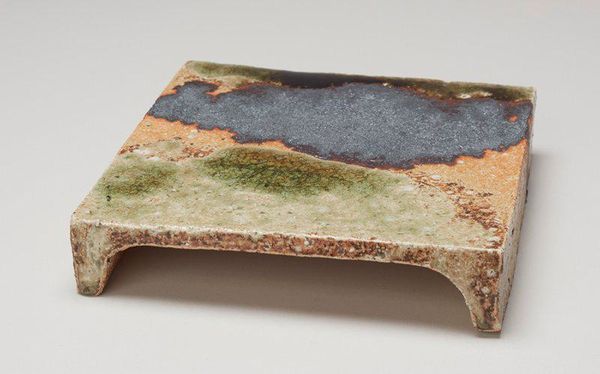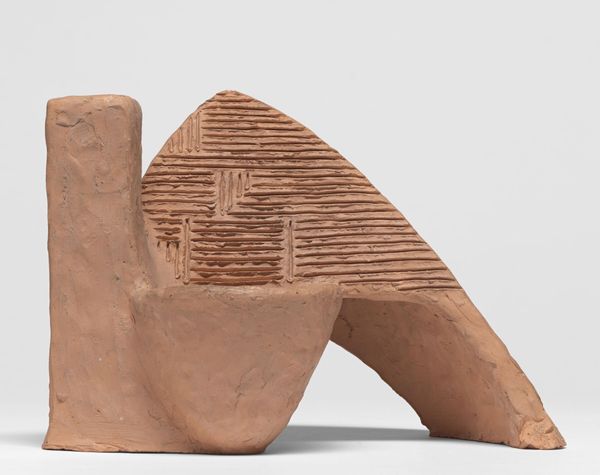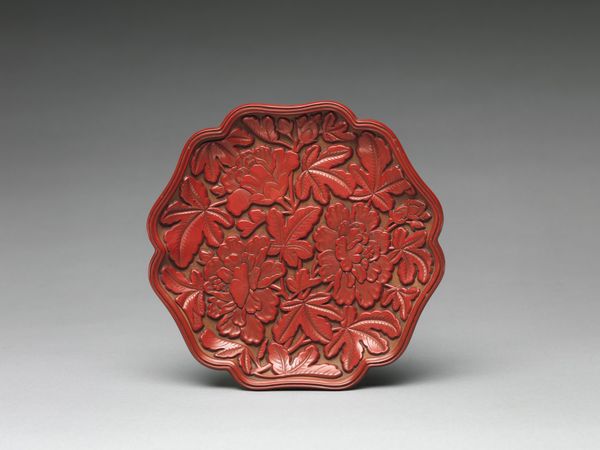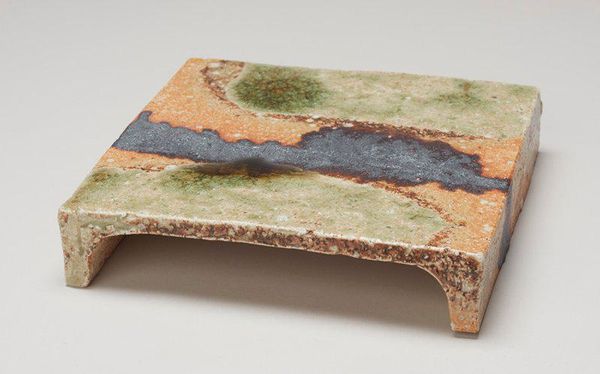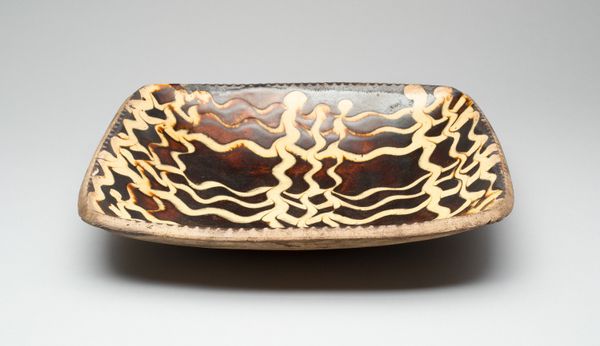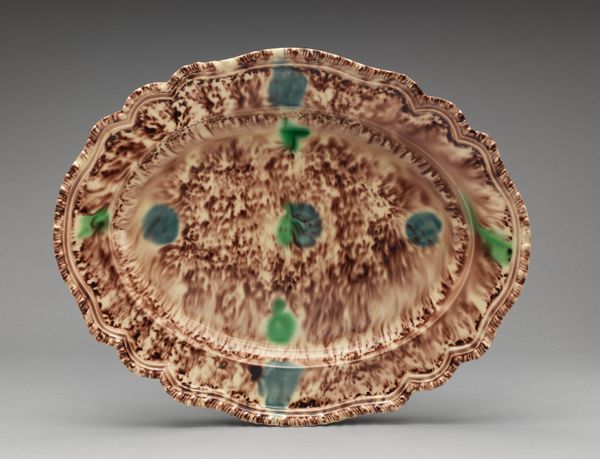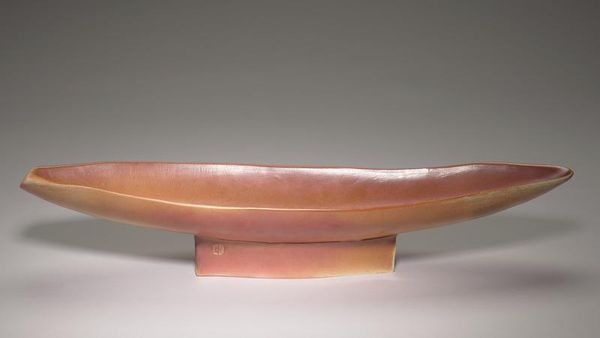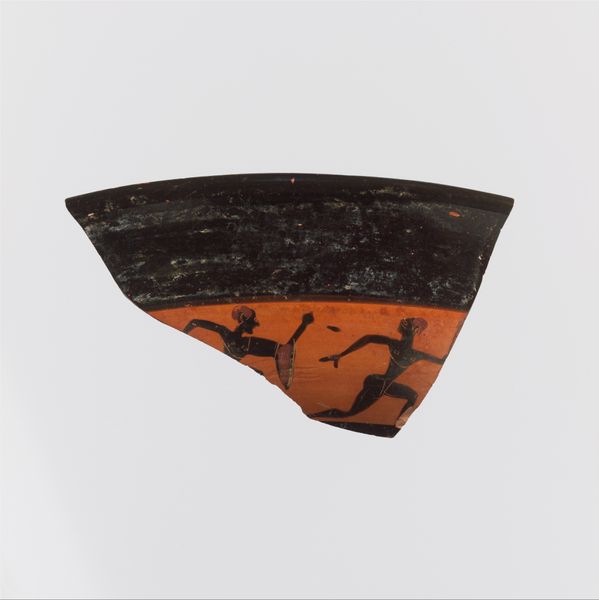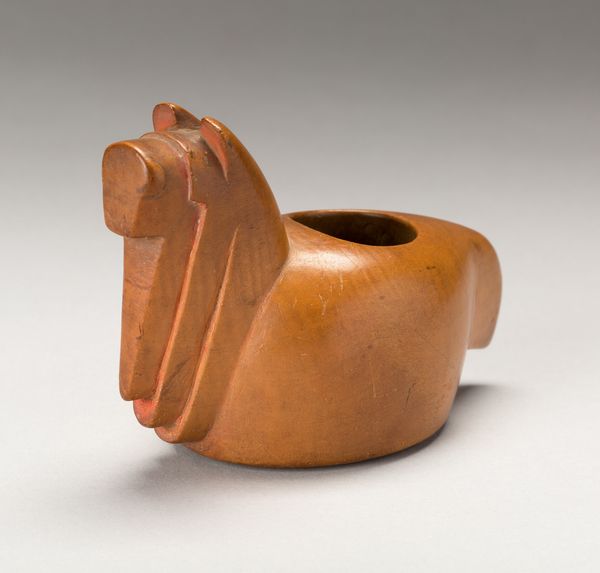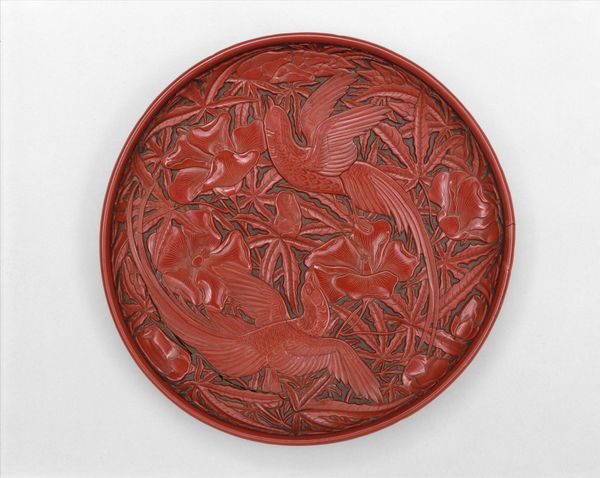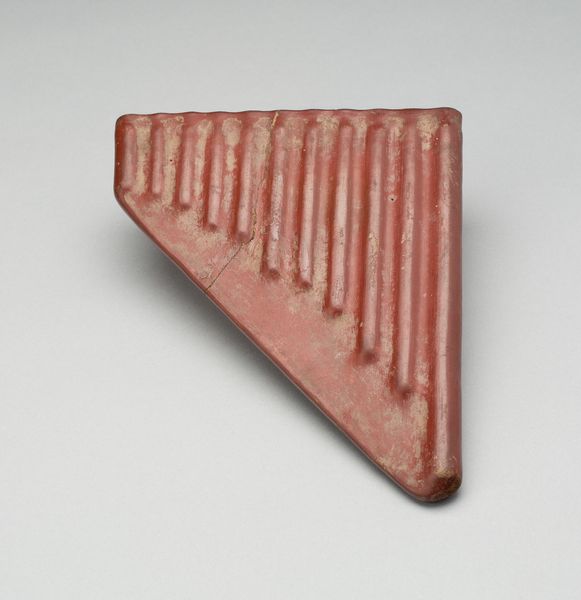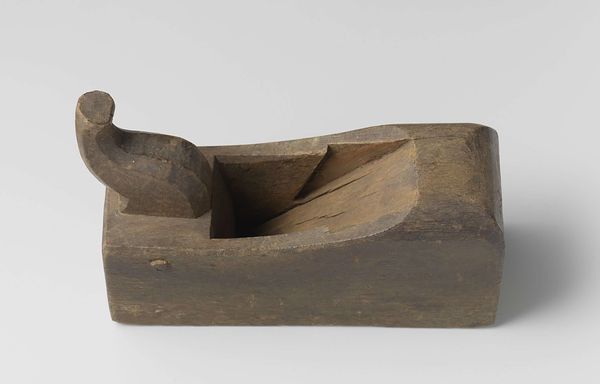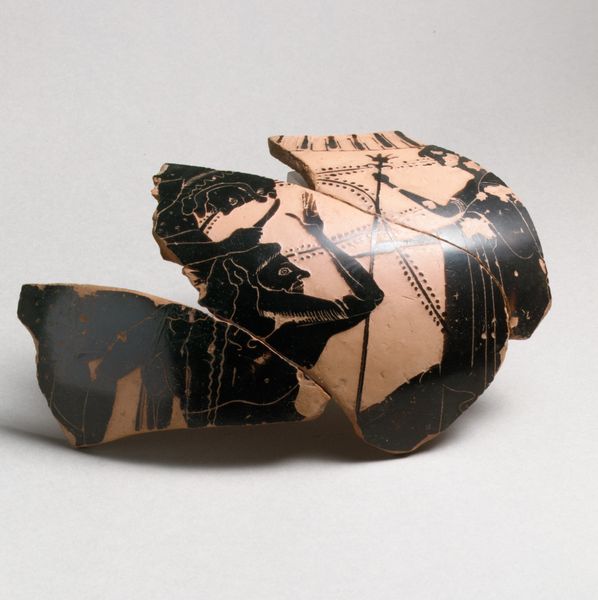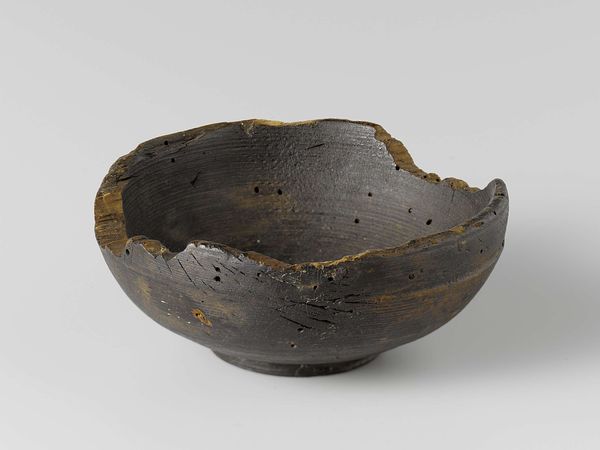
ceramic, terracotta
#
asian-art
#
ceramic
#
ceramic
#
terracotta
#
organic texture
#
erotic-art
Dimensions: height 3.6 cm, width 26.8 cm, depth 26.7 cm
Copyright: Rijks Museum: Open Domain
This dish was made in Japan by Eiraku Hozen, who lived from 1795 to 1854. The imagery and crafting of this piece offer a glimpse into Japan’s complex social and cultural landscape. Note how it echoes traditional lacquerware with its reddish-brown hue and detailed, raised designs. This aesthetic connects the dish to established artistic practices. But the piece also suggests the changing tides of Japanese society during the Edo and early Meiji periods. Consider the economic structures of the time: merchant culture was on the rise, influencing artistic tastes. Artisans were increasingly caught between tradition and the demands of a market economy. The dish seems to acknowledge the old and embrace the new, making it a fascinating document of its era. By exploring historical archives, studies of Japanese art, and economic histories, we can understand the subtle ways in which art objects reflect and comment on their world.
Comments
rijksmuseum over 2 years ago
⋮
The surface of this dish imitates the carved ornamentation of monochrome Chinese lacquerwork, while the base is very colourfully decorated. This experimentation with contrast and surprising elements characterizes Kyoto pottery of the early years of the 19th century, as do the Chinese features associated with the China vogue at that time.
Join the conversation
Join millions of artists and users on Artera today and experience the ultimate creative platform.
